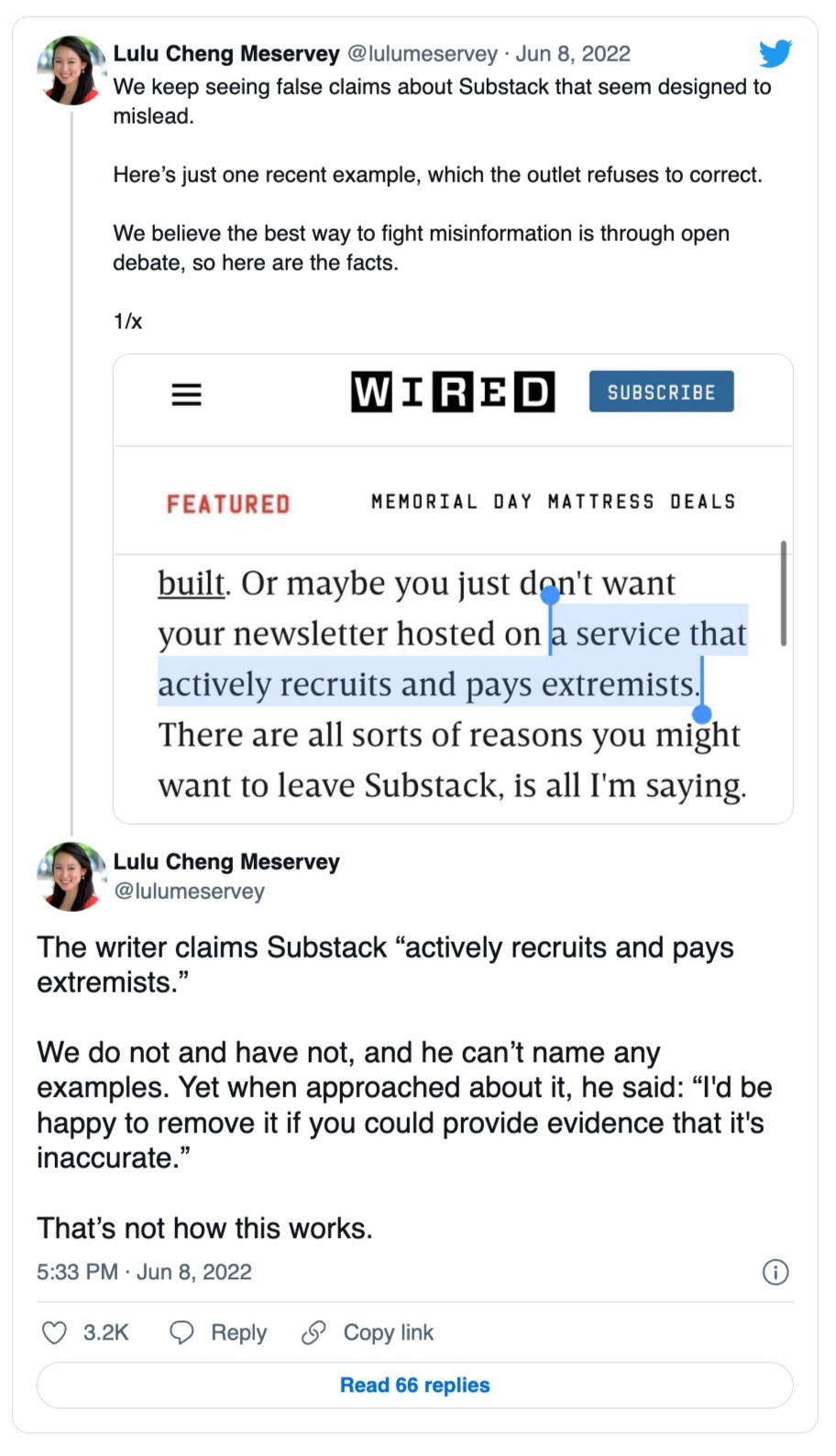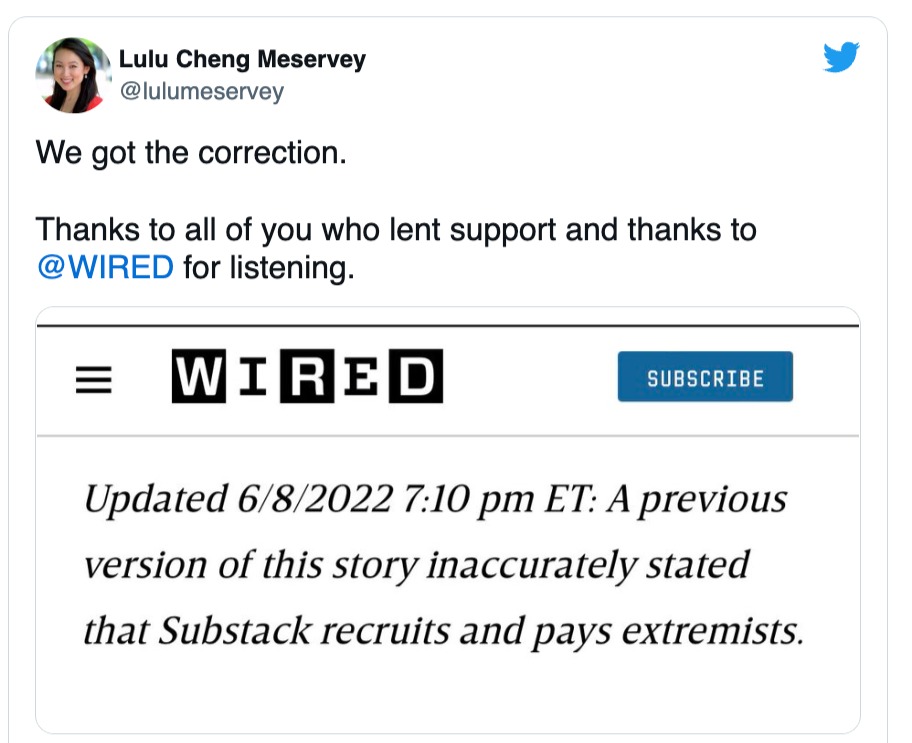
(Article by Christina Maas republished from ReclaimTheNet.org)
The tech outlet was forced to retract the statement after Substack’s head of communications Lulu Cheng Meservey, who has done a good job in speaking out in support of free speech, took to Twitter to expose how Wired did not provide evidence and refused to provide evidence of their claims even after Substack pointed that out to the outlet privately.
“We do not and have not, and he can’t name any examples,” Meservey wrote in one of the tweets. “Yet when approached about it, he said: ‘I’d be happy to remove it if you could provide evidence that it’s inaccurate.’”

Meservey rightly pointed out that is not how journalism works.
“It’s not journalism to make an unfounded claim and demand contrary “evidence” to remove it. It borders on extortion: we will defame you unless you give us what we want,” she wrote.
She likened what Wired did to a news outlet accusing you of laundering money “and when you protest, they refuse to issue a correction unless you give them your financial statements,” adding that the “burden of proof is on the journalist, not the subject.”

Meservey went on to note that not only was evidence not provided, the writer did not make an attempt to show any of the allegedly recruited people were extremists.
The false claim was retracted but it is a testament to the recent smear campaign against Substack. The newsletter platform allows journalists, writers, and other content creators to make money, as it is subscription-based, meaning creators can avoid having to rely on invasive advertising practices.
Read more at: ReclaimTheNet.org
Please contact us for more information.




















